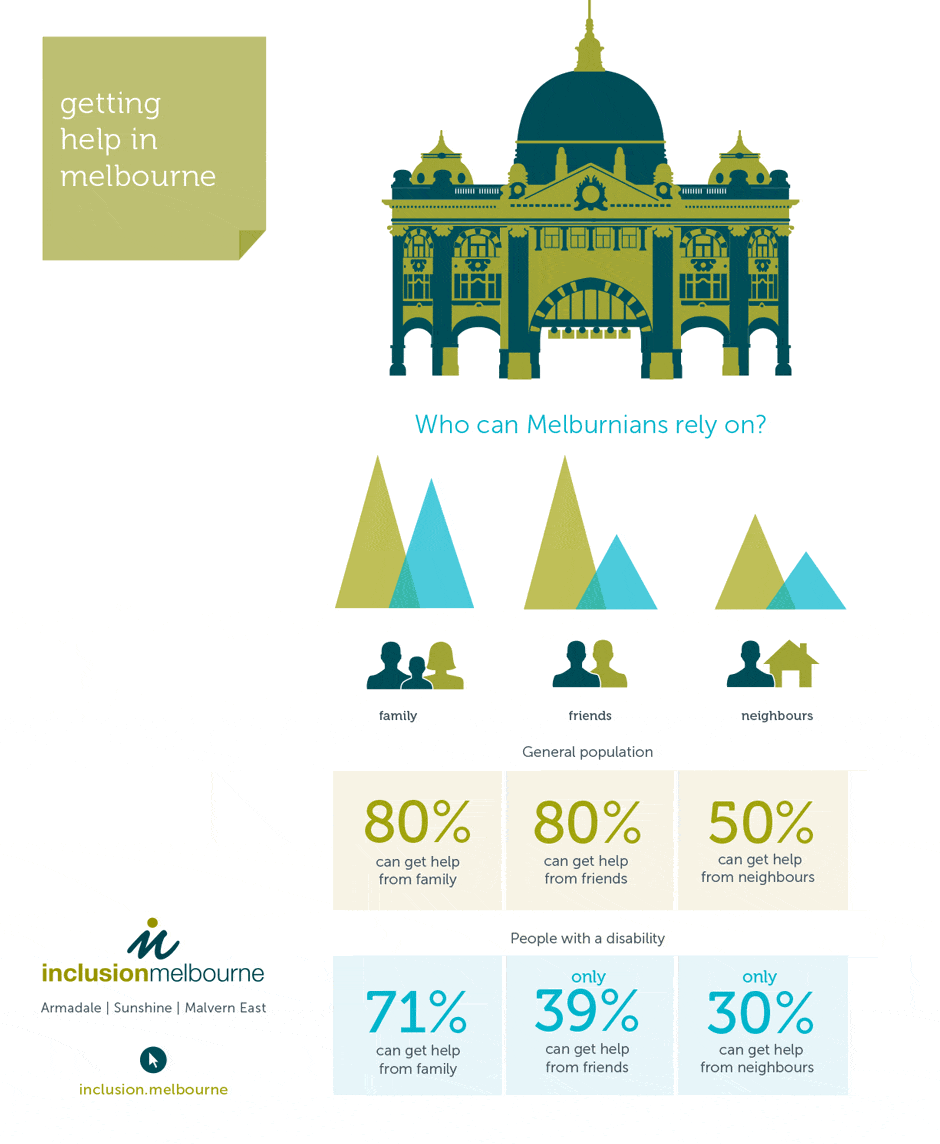Getting help in Melbourne
In 2011, the Department of Health reported on a survey they had conducted in Victoria where they interviewed people with an intellectual disability about a whole range of matters. One of the focus areas was the lived experience of receiving help from family, friends, neighbors and community members. The survey found that there is generally help to be found from family members, but social networks, neighbors and communities are not always to be relied upon and in fact, provide significantly less support to people with disability than they do to the general population.
Asking for and receiving help can be a challenging task for people with a disability, for several reasons. Firstly, a person’s verbal capacity to ask for help may be a barrier if they have difficulty communicating. Secondly, they may not feel confident or brave enough to ask for help. If a person is already feeling excluded and vulnerable, asking for help can be an extremely challenging task.
Another barrier for people with a disability asking for help is whether or not someone has the physical means to seek support. If a person with a disability only has limited or occasional access to a telephone, calling a person to ask for help may be difficult, inconvenient or impossible.
At Inclusion Melbourne, we sometimes hear great stories about local community members who keep a watchful eye on their neighbors with a disability, or who live in supported accommodation. If they notice something out of the ordinary, they ask if it is OK to call the person’s family or support provider. Instances of neighbors looking out for each other improve the overall safety of people with a disability, and lead to them building friendships that enhance wellbeing and provide an avenue for help or assistance with an issue in the future.
Part of Inclusion Melbourne’s unique support service is its Leisure Buddy program, which is integral to the organisational belief that everyone should have someone in their life who isn’t paid to be there. The Leisure Buddy program links an adult with a disability and a volunteer so they can share interests and activities and develop a real friendship. Friendships based on mutual interest lay the foundation for a strong support network filled with trusted people who can be called upon when help is needed.



